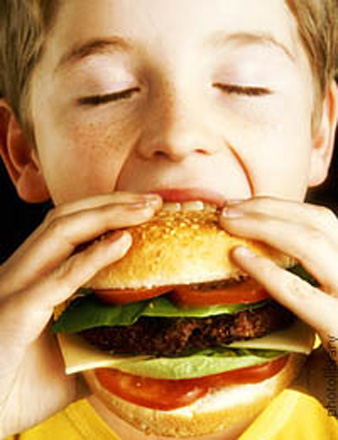More than 49 million Americans -- one in seven -- struggled to get enough to eat in 2008, the highest total in 14 years of a federal survey on "food insecurity," the U.S. government said Monday, Reuters reported.
While Agriculture Secretary Tom Vilsack said programs such as food stamps softened the impact of an economic recession, anti-hunger groups pointed to the huge increase from the preceding year when 36.2 million people had trouble getting enough food and a third of them occasionally went hungry.
"The survey suggested that things could be much worse but for the fact that we have extensive food assistance programs," Vilsack told reporters. "This is a great opportunity to put a spotlight on this problem."
About 14.6 percent of U.S. households, equal to 49.1 million people, "had difficulty obtaining food for all their members due to a lack of resources" during 2008, up 3.5 percentage points from 2007 when 11.1 percent of households were classified as food insecure.
About 5.7 percent of households, or 17.3 million people, had "very low food security," meaning some members of the household had to eat less. Typically, food runs short in those households for a few days in seven or eight months of the year, USDA said.
President Barack Obama called the USDA report "unsettling" and vowed to reverse the trend of rising hunger.
"Our children's ability to grow, learn, and meet their full potential -- and therefore our future competitiveness as a nation -- depends on regular access to healthy meals," Obama said in a statement.
USDA's annual report was based on a survey conducted in December 2008, soon after financial markets slumped and when the jobless rate was marching toward its current 10.2 percent.
"The numbers are even worse than people otherwise believed," said Jim Weill of the Food Research and Action Center, an anti-hunger group. "We all know we have the worst downturn since the Depression."
David Beckmann of the anti-hunger group Bread for the World
called for stronger federal anti-hunger programs.
"The recession has made the problem of hunger worse, and it has also made it more visible," he said.
Vilsack said the report represented "an opportunity here for the country to make a major commitment to end childhood hunger by 2015," an administration goal. He called on Congress to make it easier for poor children to get free school meals and to improve the nutritional quality of those meals.
Child nutrition programs, which cost about $24 billion a year, are overdue for renewal but Congress is not expected to act before 2010. The administration backs a $1 billion increase but has not found offsetting cuts at USDA to pay for it.
The number of Americans receiving food stamp assistance soared above 36 million for the first time in August, the eighth month in a row that enrollment set a record, the USDA said earlier this month.
As part of the stimulus package, food stamp benefits were raised temporarily through September 2010. Vilsack said it was too early to judge if the increase should become permanent.






